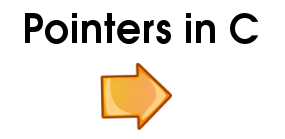 23. What is a “null pointer assignment” error? What are bus errors, memory faults, and core dumps?
23. What is a “null pointer assignment” error? What are bus errors, memory faults, and core dumps?
These are all serious errors, symptoms of a wild pointer or subscript.
Null pointer assignment is a message you might get when an MS-DOS program finishes executing. Some such programs can arrange for a small amount of memory to be available “where the NULL pointer points to” (so to speak). If the program tries to write to that area, it will overwrite the data put there by the compiler. When the program is done, code generated by the compiler examines that area. If that data has been changed, the compiler-generated code complains with null pointer assignment.
This message carries only enough information to get you worried. There’s no way to tell, just from a nullpointer assignment message, what part of your program is responsible for the error. Some debuggers, and some compilers, can give you more help in finding the problem.
Bus error: core dumped and Memory fault: core dumped are messages you might see from a program running under UNIX. They’re more programmer friendly. Both mean that a pointer or an array subscript was wildly out of bounds. You can get these messages on a read or on a write. They aren’t restricted to null pointer problems.
The core dumped part of the message is telling you about a file, called core, that has just been written in your current directory. This is a dump of everything on the stack and in the heap at the time the program was running. With the help of a debugger, you can use the core dump to find where the bad pointer was used.
That might not tell you why the pointer was bad, but it’s a step in the right direction. If you don’t have write permission in the current directory, you won’t get a core file, or the core dumped message.
24. How can you determine the size of an allocated portion of memory?
You can’t, really. free() can, but there’s no way for your program to know the trick free() uses.